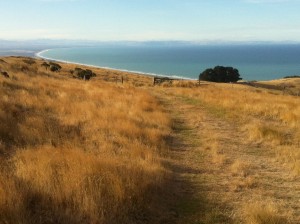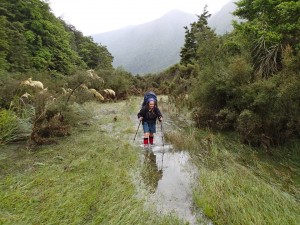As the December exam period nears, you can feel the atmosphere of the school change. The library fills with students leafing furiously through case books, glaring at SNAILs occupying coveted library territory. The weight of the feeling of impending doom of exams can be hard to bear. Last December exam period I struggled with the stress, succumbed to panic, and spent a significant part of the end of first term curled up in a ball ruing the day I chose to come to law school. Despite the fact that December exams don’t really count for first years, I managed to work myself into a frenzy. My boyfriend fondly recalls the sobbing fits and outright madness that characterized December 2011.
When April exams came (the exams that are for keeps), I no longer felt crushed by the pressure. I made it through exams without panicking and significantly improved my average from December, all with committing less overall time to studying. Here’s what I changed:
1. Effective Time Management.
You’ve heard it before, but it can’t be stressed enough. You DO NOT need to commit every waking hour to studying to succeed. It is equally important to take some time each week to do the things you enjoy. Otherwise, law school can become an evil oppressive force in your life that prevents you from doing what you love. When you study, focus. When you’re not studying, avoid the books. Compartmentalizing my time really helped me to study effectively.
I’m an outdoorsy person, and I realized that a large part of my December stress was due to the fact that I wasn’t getting outside as much as I was used to. The ski season was starting and I was stuck inside hitting the books. I skipped out on several opportunities to go skiing, hiking, or climbing because I was ‘too busy’ with school work. Instead of giving me more opportunity to study, this made me depressed and ineffective. During second semester, I spent one day out of every weekend skiing, sometimes two. I made myself promise that if I got the opportunity to get outside, I would work twice as hard on my study days.
I would work more effectively knowing that I could reward myself if I achieved certain goals. I would decide that I could have a day off if I read a certain number of cases or canned a certain amount of the course. I would highly recommend this method to anyone who is feeling like they are lacking time for the things in their life outside of law school. Not into skiing? Try motivating yourself with a day to spend with your significant other, a day at the movies, a day to indulge in TLC… whatever floats your boat.
2. Collegiality and study groups
I had the good fortune in first year of having a great small group; we were willing to work together to succeed. I think that we all benefited from the fact that we did not compete too heavily with each other, shared notes, and worked together. We helped each other resolve our mistakes and highlighted difficult portions of the course material.
In first term, we hadn’t sorted out how to run study groups effectively. We had a number of sessions with too many people or that lacked focus. This often ended up degenerating into arguments and frustration.
By the end of second term, we found that the best sessions had a structure. Working through old exams together and highlighting the issues let us red flag problems we were having with the material. We also would run through the syllabi and make sure we were all on the same page with the rules in each case. If there was disagreement, we could resolve this with the professor. Both of these methods provided structured discussion about the course.
Outside of study groups, we were always willing to share notes, cans, and study tools. It felt great to have a network of supportive people who were just as willing to answer my late night texts as to indulge in a celebratory beer at every first year milestone.
3. Exercise
During first term I couldn’t conceive of having enough time to exercise during exam period. In April I managed to get in at least 45 minutes in the gym before every exam. By the time I headed to campus for exams, I was on my toes and thinking clearly. Exercising also gave me the opportunity to plug in my headphones and listen to some music, clearing my head. This was the biggest key to fighting stress and keeping me relaxed during exam period. It was well worth the hour or so spent away from the books.
The take away:
Surviving exams isn’t a challenge in endurance studying. Take some time for yourself, keep doing the things you love; work hard – but work effectively.





